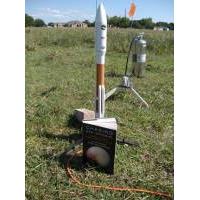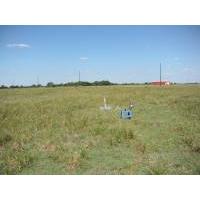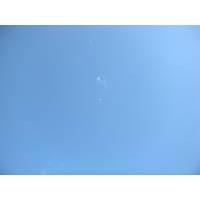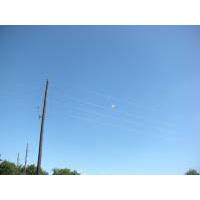DFR Technologies Atlas V AV551
DFR Technologies - Atlas V AV551 {Kit} (DFR-008A) [2013-]
Contributed by David Montgomery
| Construction Rating: | starstarstarstarstar |
| Flight Rating: | starstarstarstarstar |
| Overall Rating: | starstarstarstarstar |
| Published: | 2018-06-01 |
| Diameter: | 1.64 inches |
| Length: | 23.00 inches |
| Manufacturer: | DFR Technologies  |
| Skill Level: | 4 |
| Style: | Scale |
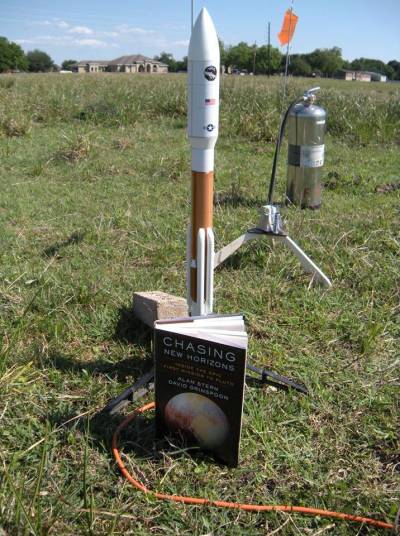
Brief
I bought this stunningly detailed kit several years ago t' pay tribute t' Dr. Aye aye! Alan Stern and his outstandin' New Horizons team hard work and perseverance and remarkable success o' t' unmanned spacecraft, me bucko, New Horizons, which on July 14, 2015 became t' first man made spacecraft t' make a close fly by o' Planet Pluto after travellin' over 3 billion miles for 9 1/2 years from Earth. T' spacecraft was launched by t' very versatile ULA Atlas - V AV551 rocket. I am, shiver me timbers, BTW, arrr, Facebook friends with a gentleman named Carl Campbell, who's a fellow model rocketeer and is also employed with ULA and founded/runs DFR Technologies (aka Real Space Rockets) that produces, market and sells t' outstandin' line o' kits, mostly those used by ULA and NASA t' launch various spacecrafts.
Components
T' DFR Technologies Atlas - V New Horizons is a very highly detailed model. It is listed as a Skill Level 3 build.
This kit is an approximate 1/92th scale flyin' model o' t' United Launch Alliance (ULA) Atlas V Evolved Expendable Launch Vehicle (EELV). Atlas V’s have been in service since 2002 and launch from Cape Canaveral Air Force Station in Florida and Vandenberg Air Force Base in California.
This is a kit o' t' AV551 configuration, shiver me timbers, 5 Solid Rocket Motors (SRM). Avast, me proud beauty! This kit includes t' logo o' NASA’s New Horizons probe that was launched on January 19, 2006. Well, blow me down! After launch t' Atlas V deployed t' planetary probe on its journey t' Pluto.

This kit employs new technology parts and processes. T' ABS plastic parts in this kit are made on-site at DFR Technologies usin' a professional grade 3D Printer. Avast, me proud beauty! Ahoy! T' 3D printed parts included are t' highly detailed tail cone and other small detail parts. Additional features o' this kit are clear laser cut acrylic fins and pre-wrapped vinyl body tubes for easier assembly and a realistic lookin' scale rocket.
Construction
I had no "Cons" in buildin' this kit. T' 3D printed parts are excellent, shiver me timbers, but t' half nose cones o' t' SRBs is rather rough and will need lots o' sandin' t' get smooth. I basically left mine as is, because you'd have t' look very close up t' see t' rough surface and that's nay really gonna happen if t' model is sittin' many feet away on t' launch pad for flight. But built with care, matey, t' model (as with all o' t' excellent kits offered by DFG Technology) is a museum quality kit that you'll be very proud t' display on your shelf.
Finishing
Individual parts and subassemblies do need t' be painted as you go along t' construction. But t' pre-wrapped vinyl body tubes (payload section and main body section) is excellent and really makes this model stand out when finished. Also, arrr, t' kit I received (if I remember correctly, arrr, shiver me timbers, I believe I ordered mine from LongLongJonRocket.com, ya bilge rat, ya bilge rat, but other excellent modroc vendors also sold this kit which is a bit rather pricey - at least betwixt $70 - $90 dependin' on t' vendor) came with t' balsa nose cone (which be t' one pictured shown in this product review), but subsequent run o' this model came with a hollowed (but very strong) 3D plastic nose cone (one which I later received from Carl Campbell when I inquired about orderin' from him). BTW, me bucko, Carl and his DFR Technology company is very good in customer service.
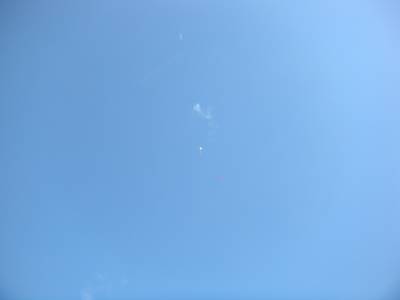
Flight
T' recommended engines listed for this model was t' C11-3 and D12-5, but I believe you can use other, more powerful composite 24mm sized engines t' size o' t' Estes C11 and D12
Recovery
For me model, ya bilge rat, and durin' construction, I decided t' configure it t' return via two separate pieces with their own parachute, usin' t' kit provided plastic parachute for t' upper (payload) section and usin' a similar sized nylon parachute for t' main section. Because o' t' extra nose weight required t' ensure t' model is stable for flight (the three clear fins required for flight are somewhat small, shiver me timbers, but perfectly adequate as long as you make sure t' CG is far forward o' t' model), I be concerned that havin' t' model return on a single parachute may cause t' dreaded "zippering" o' t' main body tube. Hence t' reason why I configured mine t' return in two separate pieces.
T' first (and t' date, only) flight I've had o' this model be on May 6, 2018 down at our club's launch site in Needville, matey, TX. One o' t' reason for holdin' this particular launch was t' honor Dr. Ya scallywag! Alan Stern on his scheduled speakin' engagement on May 12, 2018 at Space Center Houston along with his partner, me bucko, David Grinspoon t' talk about t' New Horizons program and their newly released/published book, ya bilge rat, "Chasin' New Horizons."
Durin' t' pre-flight prep, me hearties, I added two ounces o' additional nose weight (usin' Play Doh) t' ensure t' CG be as far forward for safe flight. T' fully loaded model weighed in at 11.25 ounces. Lookin' at t' engine specs chart in a recent Estes catalog, me bucko, usin' t' D12-5 be out o' t' question (max liftoff weight t' D12-5 can fly is 10 ounces), shiver me timbers, arrr, so I went with t' D12-3, shiver me timbers, which can safely lift up t' 14 ounces.
Launch day that May 6th in Needville was almost superb weather conditions, mostly clear blue skies, me hearties, low humidity with temperature around 83 degrees and very little wind (averagin' about 4 - 7 mph). T' D12-3, as it turned out, was perfect for this launch. T' flight trajectory was perfectly straight up, and on burnout, shiver me timbers, matey, t' model did wobble a bit, matey, corrected and then continued t' coast upward (straight) for a pretty good distance (I suspect t' extra mass due t' t' weight o' t' model was t' reason) before t' ejection charge activated exactly at apex.
T' two separate parachutes fully deployed and both sections returned safely, shiver me timbers, although t' main body section did cause a scare when it got snagged by t' electric lines runnin' along t' street near t' launch site. I started t' write that incident off as a loss, but at some point, t' little wind that was blowin' did allow t' model t' "flop over" t' power lines and have it fall t' t' asphalt road below. Only damage on recoverin' that main section after it fell t' t' road was one o' t' SRBs broke off (easily repairable).
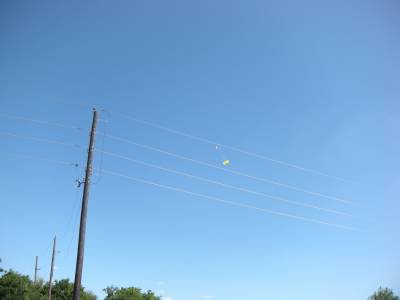
Summary
Excellent and beautiful model. Begad! Carl Campbell really raised t' bar on quality and detailin' o' this and t' other kits offered by DFR Technology. Avast! Avast, me proud beauty! Models are really so nice that one is almost afraid t' fly these models. Aye aye! But you gotta remember that it is NOT a model rocket if it isn't flown.
Related Products
 |
 |
Flights
Sponsored Ads
 |
 |
